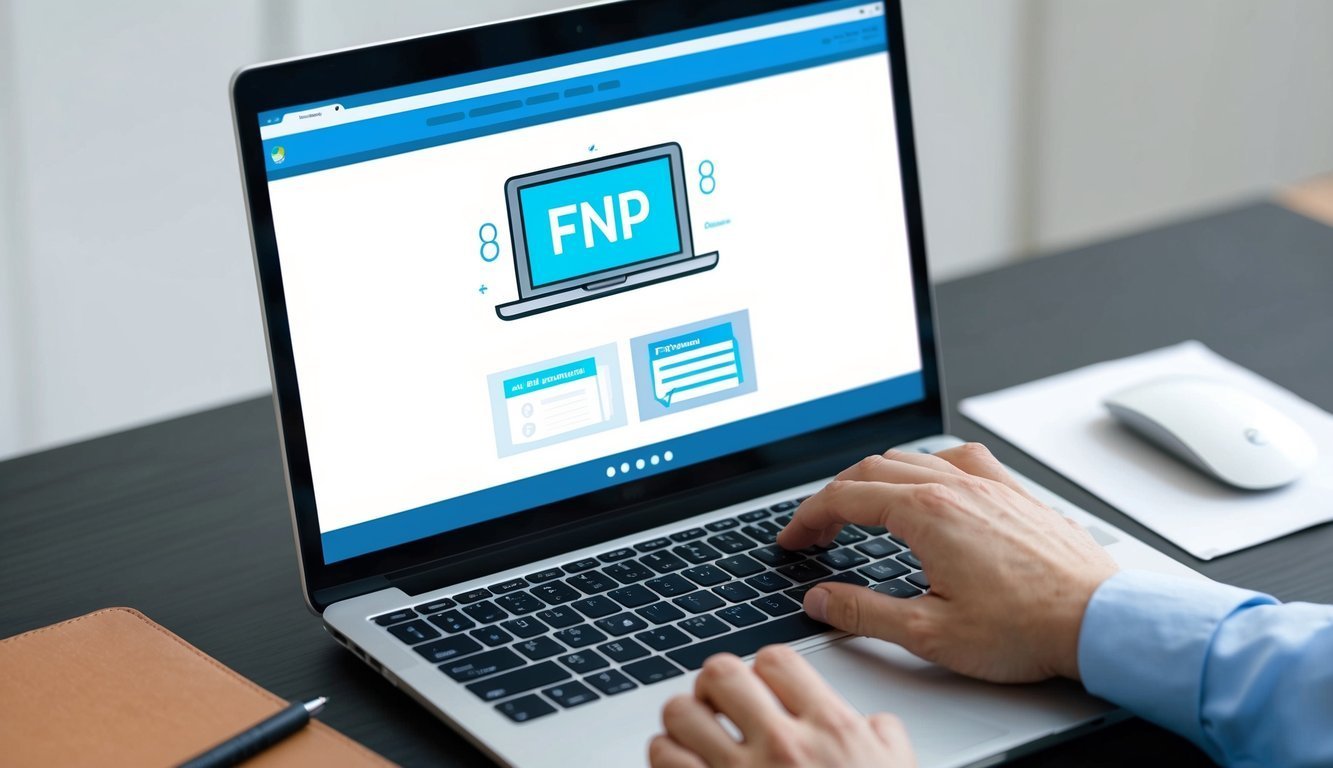Online FNP programs offer a convenient way for you to advance your nursing career.
These programs provide flexibility to balance your studies with work or family commitments. Enrolling in an online FNP program can help you gain the necessary skills and knowledge to provide comprehensive healthcare services as a family nurse practitioner.
Many accredited universities now offer robust online curricula that cover essential topics in nursing education.
You will find that these programs typically include clinical rotations, allowing you to gain hands-on experience while earning your degree.
With the growth of telehealth, the demand for qualified family nurse practitioners continues to rise, making this a timely choice for your career path.
As you explore your options, it’s important to understand the admission requirements and what the curriculum entails.
FNP programs online can lead to rewarding career opportunities in various healthcare settings, empowering you to make a positive impact on patients’ lives.
Key Takeaways
- Online FNP programs offer flexibility to balance education with personal commitments.
- Accreditation ensures the program meets high educational standards.
- Graduating FNPs find diverse job opportunities in the healthcare field.
Understanding Family Nurse Practitioner Programs
Family Nurse Practitioner (FNP) programs prepare you for advanced roles in healthcare.
These programs focus on primary care, emphasizing both theoretical knowledge and practical skills essential for patient management.
As demand for healthcare professionals grows, understanding the FNP’s scope of practice and the types of programs available will help you make informed choices.
Scope of Practice and Responsibilities
As an FNP, your scope of practice allows you to provide comprehensive care to patients across all ages.
You will diagnose and treat various health conditions, prescribe medications, and perform certain procedures.
Your responsibilities may include:
- Conducting physical exams
- Ordering and interpreting diagnostic tests
- Providing patient education
- Managing chronic illnesses
FNPs often work in diverse settings such as private practices, hospitals, and community health centers.
This versatility enables you to connect with patients and address their unique healthcare needs effectively.
By becoming a Family Nurse Practitioner, you play a critical role in improving patient outcomes in your community.
Types of FNP Programs: MSN vs DNP
When considering FNP programs, you primarily have two options: Master of Science in Nursing (MSN) and Doctor of Nursing Practice (DNP).
| Program Type | Degree Earned | Duration | Focus |
|---|---|---|---|
| MSN | Master’s Degree | 2-3 years | Clinical skills and advanced practice |
| DNP | Doctorate Degree | 3-4 years | Leadership, policy, and advanced clinical practice |
The MSN typically focuses on preparing you for clinical roles, while the DNP emphasizes leadership and research.
Both programs require clinical hours and certification exams for practice.
Choosing the right path depends on your career goals and the level of responsibility you wish to assume in your nursing practice.
For more information on available programs, you can visit Nurse.org’s FNP program page.
Admission Requirements and Prerequisites
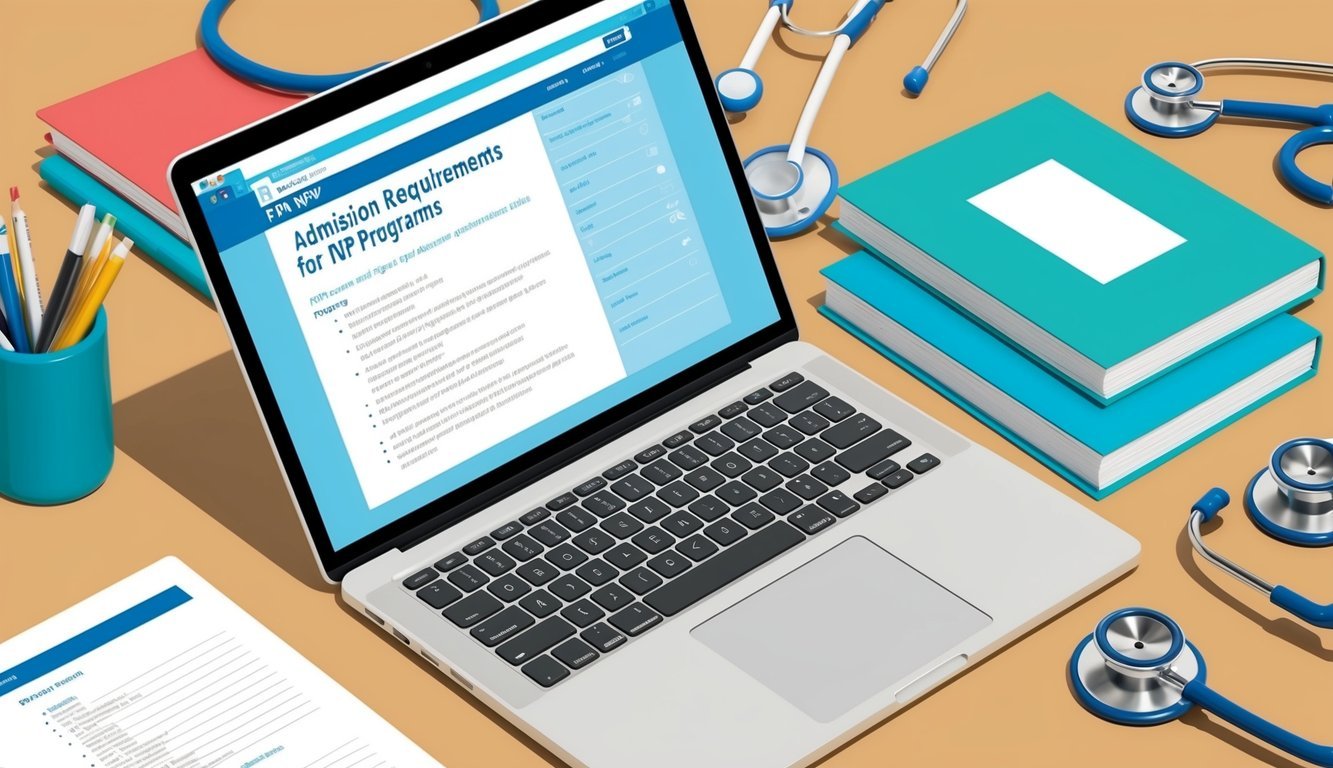
Before you can enroll in an online Family Nurse Practitioner (FNP) program, certain prerequisites must be met.
Understanding these requirements will help you prepare for a successful application.
BSN to FNP Program Pathway
If you aim to pursue an FNP program, having a Bachelor of Science in Nursing (BSN) is essential.
Most programs require this degree as the foundational qualification.
It ensures you have the necessary nursing knowledge and skills.
In some cases, RN to BSN pathways can also be available for those holding an associate degree.
Completing your BSN often requires courses in nursing theory, health assessment, and pharmacology.
Many programs may also specify a minimum number of clinical hours completed in your BSN program.
This prerequisite ensures that you have hands-on experience before advancing to graduate-level work.
Academic Expectations and Undergraduate GPA
Academic performance plays a crucial role in your admission.
Most FNP programs require a minimum undergraduate GPA, commonly set at 3.0 or higher on a 4.0 scale.
A higher GPA can enhance your application, particularly in science and nursing courses.
Transcripts from your BSN program will be evaluated to assess your academic readiness.
It is beneficial to excel in core coursework, including nursing fundamentals and health assessment.
In addition to GPA, many programs might ask for letters of recommendation from professionals in the nursing field.
Strong endorsements can significantly impact your candidacy.
RN License Verification and Clinical Experience
Holding an active RN license is mandatory for admission into FNP programs.
This license verifies your qualifications and ensures that you meet state nursing regulations.
Alongside your RN license, you should be prepared to provide documentation of your clinical experience.
Many programs value candidates with substantial clinical hours, typically ranging from 1 to 2 years in various nursing settings.
Clinical experience helps you build essential skills and prepares you for more advanced practice.
Ensure you record these hours accurately, as you may be asked to provide proof during the application process.
Curriculum and Academic Content

In online Family Nurse Practitioner (FNP) programs, you will encounter a comprehensive curriculum that combines core nursing principles with specialized knowledge.
This curriculum is designed to prepare you for advanced clinical roles and effective patient care.
Core Nursing Courses
Core nursing courses lay the groundwork for your education.
These courses cover essential topics that form the basis of nursing practice.
Here are key areas you will explore:
- Advanced Pathophysiology: Understand complex disease processes and their effects on the body.
- Advanced Pharmacology: Learn about medication management, including drug interactions and side effects.
- Health Assessment: Develop skills to perform thorough physical examinations and identify health issues.
- Disease Prevention: Study strategies to prevent illness and promote overall wellness.
These courses not only enhance your clinical knowledge but also prepare you for specialized training as a Family Nurse Practitioner.
Specialized FNP Courses
Specialized FNP courses focus directly on the skills needed to function effectively in family healthcare settings.
Key courses include:
- Family Nurse Practitioner Courses: These integrate clinical skills with a focus on family dynamics and health needs.
- Health Promotion: Explore methods to encourage healthier lifestyles among patients and communities.
The specialized content equips you to assess, diagnose, and treat various health conditions uniquely impacting families.
The emphasis on real-world applications ensures that you are ready to make a difference in clinical settings.
Clinical Practicum and Rotations
Clinical practicum and rotations offer hands-on experience in various healthcare environments.
These are crucial for applying your knowledge in real-life scenarios.
- Clinical Rotations: You will work under experienced practitioners, gaining insight into patient care while developing practical skills.
- Advanced Health Assessment: Focused assessments prepare you to evaluate patients comprehensively, addressing both physical and mental health needs.
- Pharmacologic Management: You will apply pharmacological principles during patient interactions, ensuring safe and effective medication use.
This practical experience not only solidifies your learning but also builds your confidence as you prepare to enter the workforce.
Online Learning Environment and Resources
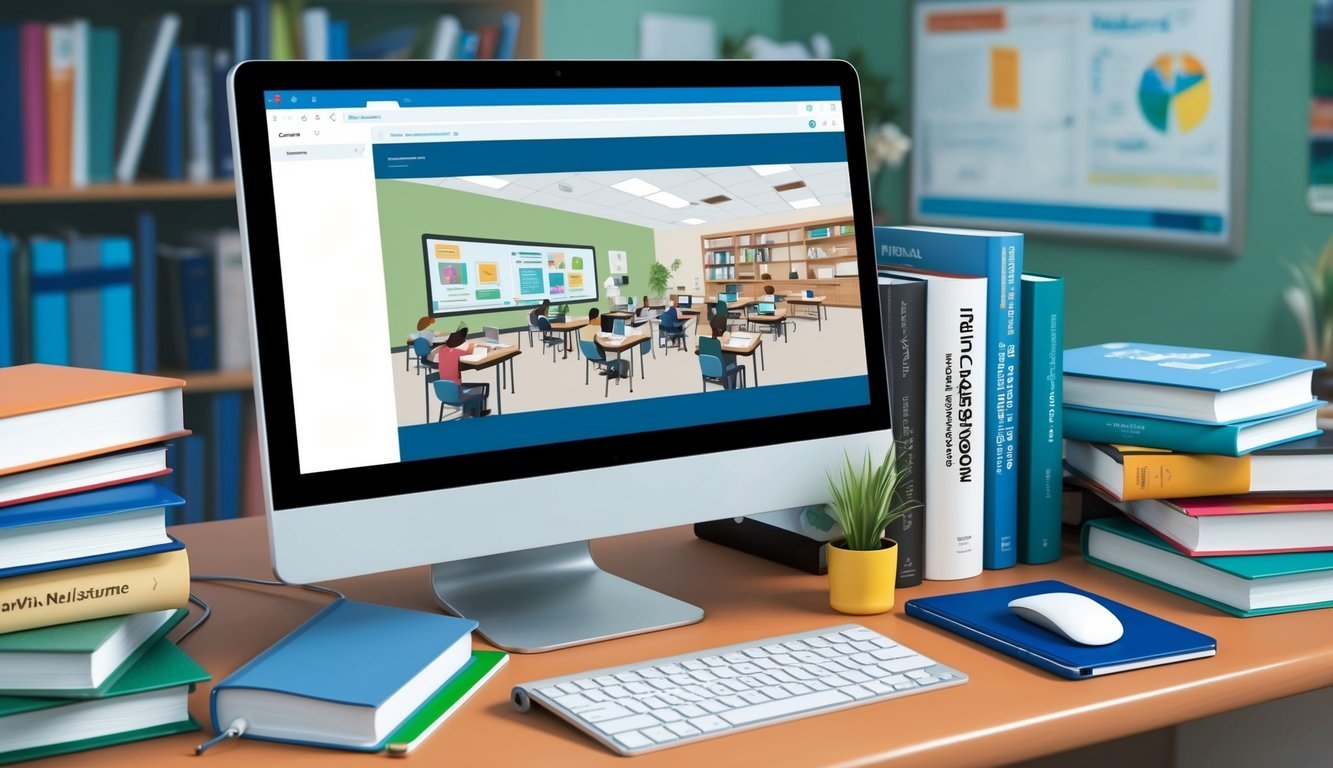
In an online Family Nurse Practitioner (FNP) program, the learning environment is designed to be flexible and supportive.
This allows you to balance your studies with personal and professional responsibilities.
You will engage in interactive classes and benefit from knowledgeable faculty and advisors.
Interactive Online Classes and Digital Tools
Online nursing classes utilize various digital tools to enhance your learning experience.
These may include video lectures, discussion forums, and learning management systems.
Through platforms like Zoom or Blackboard, you can participate in live classes or access recorded sessions at your convenience.
Many programs incorporate interactive elements, such as quizzes and case studies, to apply your knowledge effectively.
You can engage in group projects with fellow students, promoting collaboration.
Here are some common digital tools you might encounter:
| Tool | Purpose |
|---|---|
| Zoom | Live lectures and discussions |
| Blackboard | Course management and resources |
| Kahoot | Interactive quizzes |
| Google Docs | Collaborative projects |
This interactive environment enriches your learning and helps you develop a deeper understanding of nursing concepts.
Faculty and Academic Advisor Support
Having access to faculty and academic advisors is crucial in an online FNP program.
You should feel comfortable reaching out to them for support with coursework and career advice.
Faculty members often hold virtual office hours, allowing you to discuss any questions or challenges you face.
Academic advisors help you plan your course schedule to ensure you meet graduation requirements.
They can provide insights on fitting your education around your work and life commitments.
Their guidance can be invaluable for navigating the program.
You may find that many online programs boast high retention rates due to this strong support system.
Engaging actively with your faculty and advisors will help you succeed in your studies and future career as a nurse practitioner.
Accreditation, Certification, and Licensure
Understanding accreditation, certification, and licensure is essential for progressing in Family Nurse Practitioner (FNP) programs.
These aspects ensure the quality of education, validate your skills, and allow you to practice nursing legally.
Role of Accreditation Bodies
Accreditation bodies assess FNP programs to maintain educational standards.
Programs accredited by organizations like the Commission on Collegiate Nursing Education (CCNE) or Accreditation Commission for Education in Nursing (ACEN) indicate that they meet high-quality criteria.
Attending an accredited program is crucial.
Employers often prefer graduates from these programs for their ability and credibility.
Additionally, many states require that your degree comes from an accredited institution for licensure.
FNP National Certification Exams
To practice as an FNP, you must pass a national certification exam.
The two primary certifications are offered by the American Association of Nurse Practitioners (AANP) and the American Nurses Credentialing Center (ANCC).
Both of these exams validate your competencies in providing family-centered healthcare.
While the AANP exam focuses on clinical knowledge, the ANCC exam includes more emphasis on leadership and management skills.
You should choose the exam that aligns with your career goals.
State Licensure for FNPs
After passing your certification exam, you must obtain a state license to practice.
Each state has specific requirements, which may include background checks, additional coursework, or continuing education hours.
You will apply for licensure through your state’s nursing board.
It’s important to check the requirements for your specific state.
Some states require an active national certification, while others may have additional steps.
Understanding your state’s requirements will help you streamline the process.
Career Outcomes and Opportunities
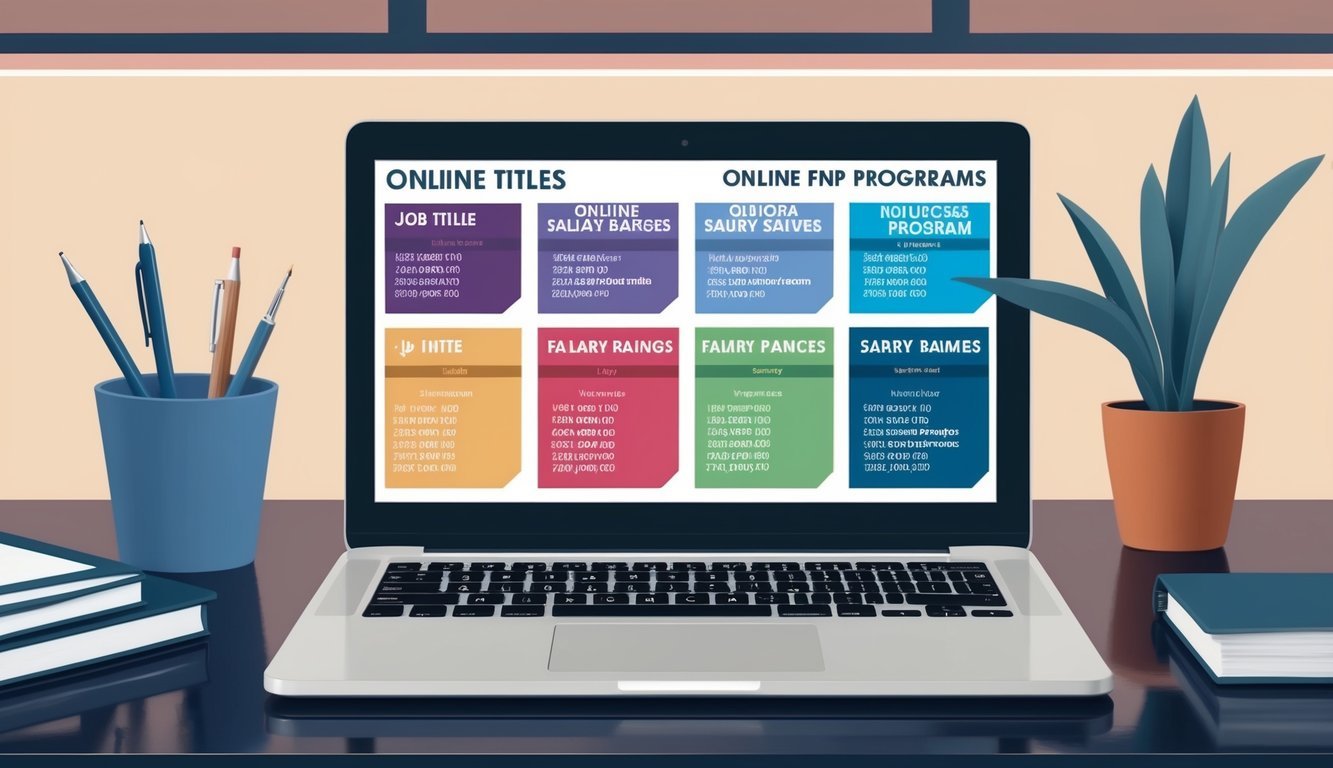
Completing an online Family Nurse Practitioner (FNP) program opens up a variety of career paths.
As an FNP, you can work in several settings, each offering unique opportunities.
Common Career Settings for FNPs:
| Setting | Description |
|---|---|
| Hospitals | Work in emergency rooms or outpatient clinics. |
| Private Practice | Manage your own practice or join a group. |
| Clinical Settings | Provide care in community health clinics. |
| Healthcare Provider | Collaborate with other professionals to improve patient care. |
FNPs often take on expanded roles within advanced practice nursing.
You’ll provide primary and specialty care, conduct assessments, and develop treatment plans.
Job Opportunities:
- Primary Care Provider: You can serve as a primary care provider for families.
- Specialty Care: Opportunities exist in areas like pediatrics, geriatrics, or women’s health.
- Educator: Teach and mentor future nurses in academic or clinical settings.
- Consultant: Offer your expertise to healthcare organizations for best practices.
The demand for FNPs is growing, and salaries are competitive.
Many FNPs earn six-figure salaries, especially in underserved areas.
By choosing this career, you can impact patient outcomes positively and be a vital part of the healthcare team.
For more information on available programs, visit resources like NurseJournal or NursingProcess.
Frequently Asked Questions
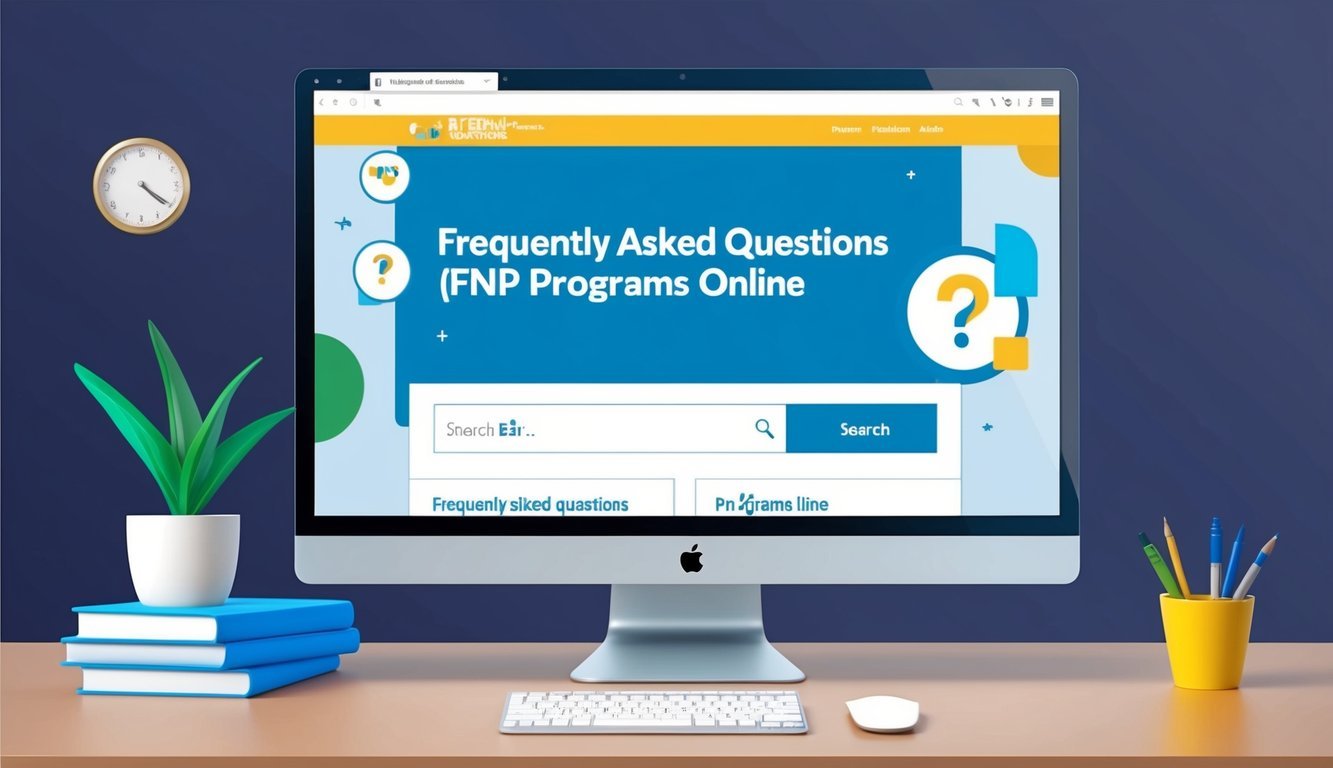
When considering online Family Nurse Practitioner (FNP) programs, you might have specific questions related to accreditation, prerequisites, clinical practice, duration, costs, and key factors in choosing the right program.
Here’s some detailed information to assist you.
What are the top accredited Family Nurse Practitioner programs available online?
Some of the most respected accredited online FNP programs include options from well-known institutions.
Programs like those offered by Baylor University and other accredited nursing schools provide rigorous education and training.
These programs often hold specialized accreditation from bodies like the Commission on Collegiate Nursing Education (CCNE).
What are the prerequisites for enrolling in an online FNP program?
To enroll in most online FNP programs, you typically need a Bachelor of Science in Nursing (BSN) from an accredited institution.
A minimum GPA, often around 3.0, is also required, along with some programs asking for one year of nursing experience.
How do online FNP programs accommodate clinical practice requirements?
Online FNP programs need students to complete clinical hours to gain hands-on experience.
Most programs require around 1,120 clinical hours.
These hours can be completed in various healthcare settings near your home, and programs work to help students find suitable placements.
What is the typical duration of online FNP programs?
The duration of online FNP programs usually ranges from two to four years, depending on whether you attend full-time or part-time.
Some programs may also offer accelerated options that allow you to complete your degree in a shorter period.
How do the costs of online FNP programs compare among accredited institutions?
The costs for online FNP programs can vary significantly.
On average, you might expect to pay between $14,637 and $47,355, depending on your residency status and the specific institution.
It is important to research each program to understand the total financial investment.
What factors should be considered when choosing an online FNP program?
When selecting an online FNP program, you should consider factors like accreditation, curriculum, faculty experience, clinical placement opportunities, and student support services.
Each of these elements significantly impact your education experience and future career opportunities.

